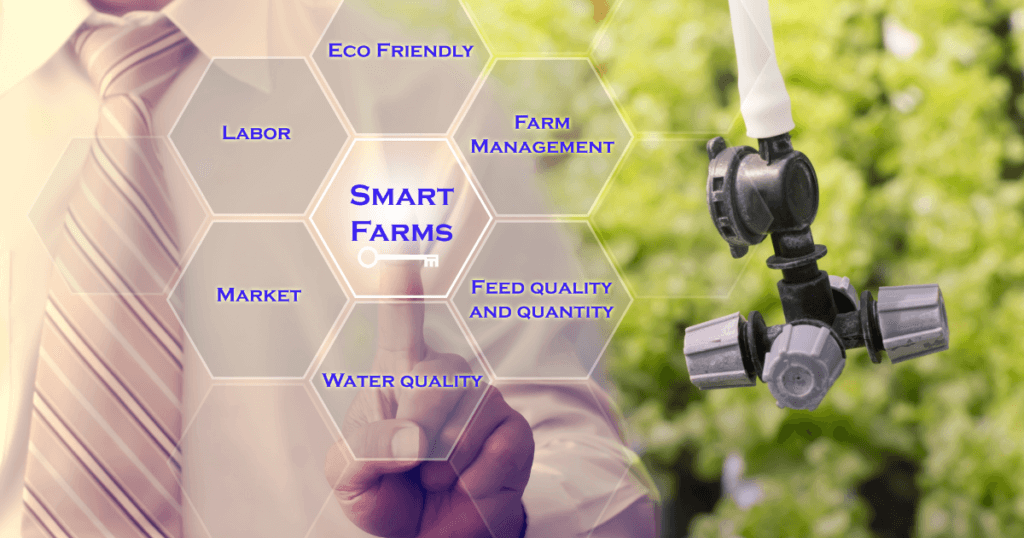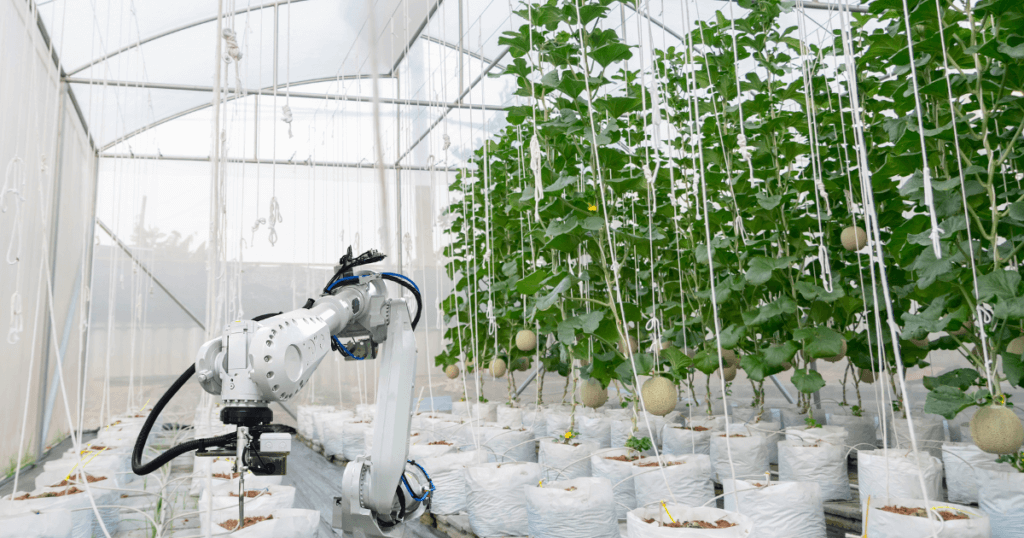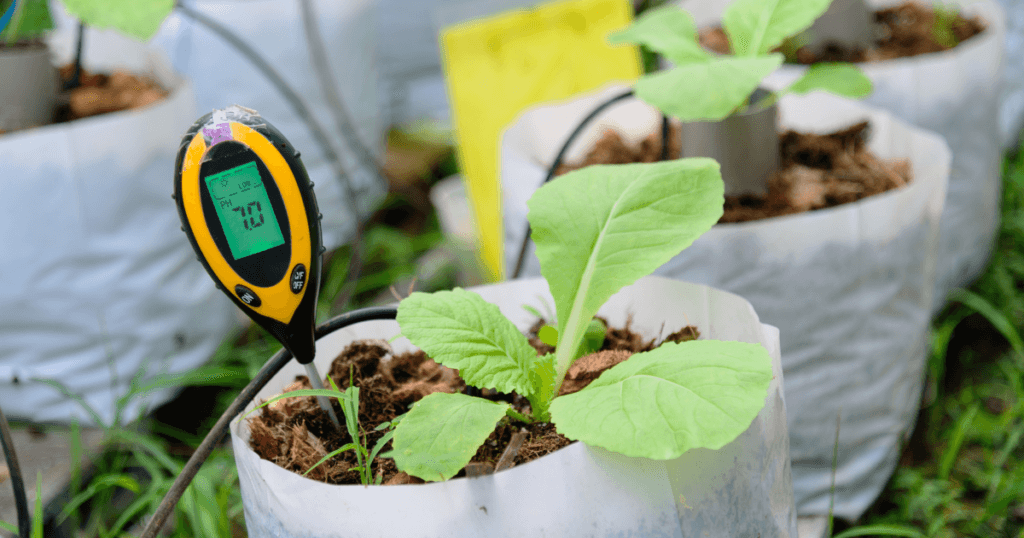Unleashing the Potential of Artificial Intelligence for Indoor Farming
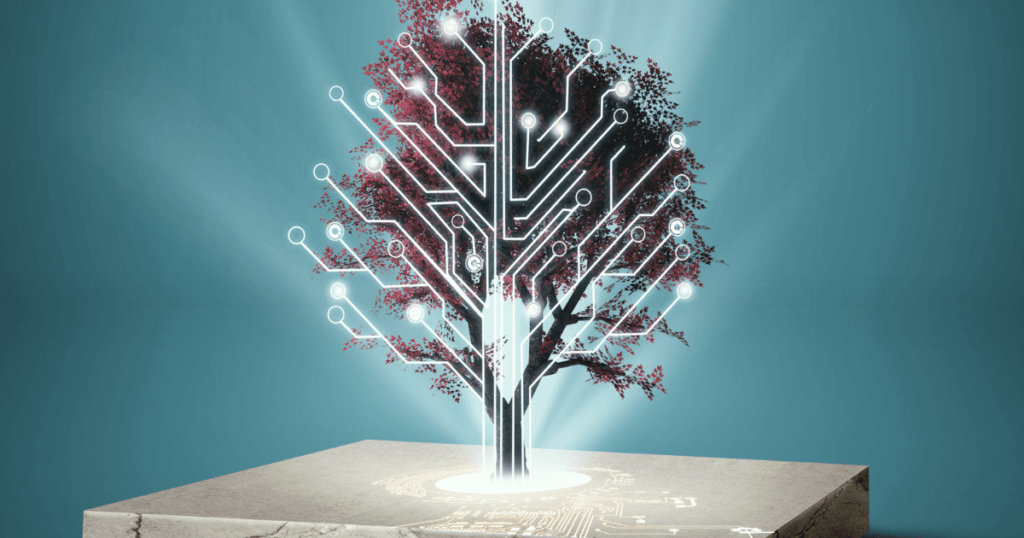
In recent years, the agricultural industry has witnessed a remarkable transformation by integrating Artificial Intelligence (AI) into various farming practices. Indoor farming, in particular, has seen a significant boost in efficiency and productivity by applying AI-powered solutions. This article delves into the potential of AI for indoor farming, exploring its innovative applications, benefits, and the future it holds. Farmers can optimize crop growth, enhance productivity, and ensure sustainable food production by leveraging AI technology.
Table of Contents
AI Revolutionizing Indoor Farming
Maximizing Crop Growth with AI
Artificial Intelligence has revolutionized the way indoor farmers grow crops. Farmers can analyze temperature, humidity, light intensityThe level of brightness or luminous flux of light reaching a... More, and nutrient levels by leveraging AI algorithms to create optimal growing conditions. AI-powered systems continuously monitor and adjust these variables, ensuring plants receive the precise amount of resources needed for growth. Additionally, machine learning algorithms can analyze vast amounts of data to identify patterns and provide actionable insights for improving crop yields.
Enhancing Productivity and Efficiency
AI-driven automation is pivotal in increasing productivity and efficiency in indoor farming. Robotic systems equipped with computer vision technology can perform tasks such as seeding, planting, and harvesting with precision and speed. These intelligent robots can navigate indoor environments, identify ripe crops, and carry out tasks without human intervention. By automating repetitive and labour-intensive processes, farmers can allocate their time and resources more effectively, leading to higher productivity and reduced costs.
Predictive Analytics for Improved Decision-Making
One of the most compelling aspects of AI in indoor farming is its ability to provide predictive analytics. AI algorithms can forecast crop growth, disease outbreaks, and harvest timelines by analyzing historical data, weather patterns, and crop-specific information. This foresight enables farmers to make informed decisions regarding resource allocation, pest control, and harvest planning. With AI-generated insights, farmers can mitigate risks, optimize resource usage, and maximize the overall success of their indoor farming operations.
Sustainable Food Production through AI
AI technologies offer promising solutions to the challenge of sustainable food production. Indoor farming, already known for reducing water usage and land footprint, can enhance sustainability with AI. By fine-tuning resource allocation, minimizing waste, and optimizing energy consumption, AI systems contribute to environmentally-friendly practices. With the world’s population increasing, AI-enabled indoor farming holds immense potential to meet the increasing demand for food while minimizing the ecological impact.
AI Applications in Indoor Farming
Smart Sensors for Environmental Monitoring
Smart sensors integrated with AI technology provide real-time data on environmental conditions within indoor farming facilities. These sensors continuously measure temperature, humidity, CO2 levels, and nutrient content. AI algorithms analyze this data to identify optimal conditions for crop growth, detect anomalies, and trigger automated adjustments. By closely monitoring the environment, farmers can ensure that crops receive the ideal conditions for their development, leading to healthier plants and higher yields.
Plant Disease Detection and Prevention
AI-powered computer vision systems enable early detection of plant diseases, improving the chances of successful treatment and minimizing crop losses. By analyzing images of plants, AI algorithms can identify subtle signs of diseases, such as discolouration or irregular growth patterns. Early detection allows farmers to take swift action, implementing targeted treatments and preventing the spread of diseases. This proactive approach reduces the reliance on chemical pesticides, promoting sustainable farming practices.
Intelligent Irrigation Systems
Water management is crucial for indoor farming, and AI-driven intelligent irrigation systems offer precise control over water usage. AI algorithms analyze data from sensors and weather forecasts to determine optimal irrigation schedules and water quantities for different crops. By providing the right amount of water at the right time, farmers can avoid water wastage, prevent over- or under-irrigation, and promote healthier root development. This water-saving approach contributes to sustainable farming practices and conserves this valuable resource.
Crop Yield Prediction and Optimization
AI algorithms can predict crop yields based on historical data, environmental conditions, and crop health monitoring. Farmers can estimate future harvest quantities by leveraging machine learning and plan accordingly. This predictive capability enables efficient resource allocation, preventing overproduction or shortage of crops. Farmers can minimize waste, reduce costs, and increase profitability in indoor farming operations by optimizing crop yields.
The Future of AI in Indoor Farming
As technology advances and AI continues to evolve, the future of indoor farming looks promising. Here are some potential developments on the horizon:
Robotics and Autonomous Systems
Advancements in robotics and autonomous systems will further enhance automation in indoor farming. Intelligent robots equipped with AI capabilities will be capable of complex tasks such as selective harvesting, plant pruning, and pest control. These robots will operate seamlessly within indoor environments, ensuring precision and minimizing human intervention. Integrating robotics and AI will streamline farming operations, optimize resource usage, and increase productivity.
AI-Powered Genetic Modification
AI algorithms can analyze genetic data and identify desirable traits in crops. This knowledge can be utilized to guide genetic modification efforts, creating crops that are more resilient, disease-resistant, and yieldThe amount of crop or harvest produced from a given area or ... More higher quantities. AI-driven genetic modification holds immense potential for developing crop varieties that thrive in challenging conditions, helping farmers adapt to climate change and ensure food security.
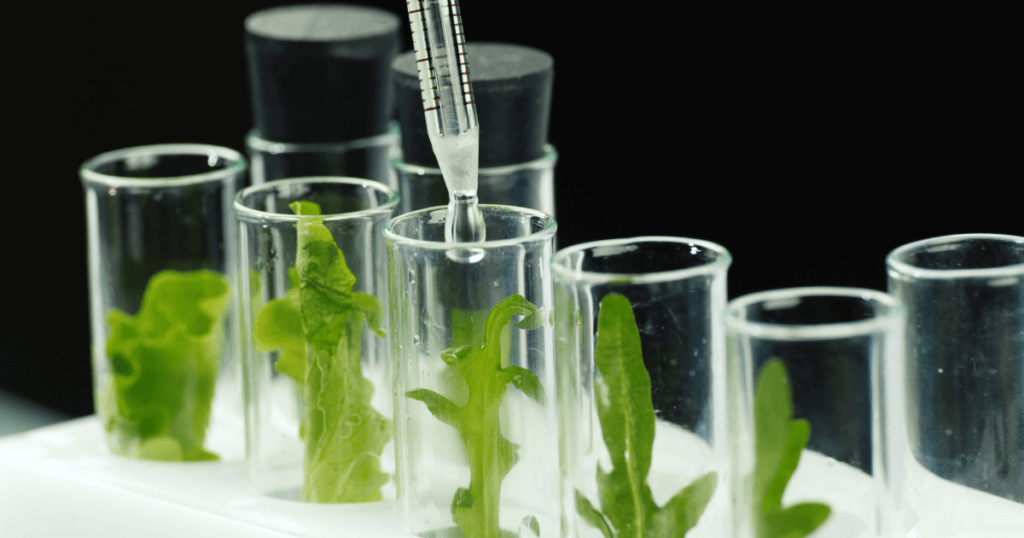
Edge Computing and IoT Integration
Edge computing, combined with the Internet of Things (IoT), will play a crucial role in the future of AI in indoor farming. By processing data locally, at the edge of the network, AI systems can deliver real-time insights and rapid decision-making. Integrated IoT devices such as smart sensors, drones, and robotic systems will generate vast amounts of data that AI algorithms can leverage for continuous improvement and optimization of farming practices.
Conclusion
Artificial Intelligence is revolutionizing indoor farming, empowering farmers to optimize crop growth, enhance productivity, and ensure sustainable food production. Farmers can maximize resource usage, predict crop yields, detect and prevent diseases, and automate labour-intensive tasks through AI-powered systems. The future holds even greater possibilities with advancements in robotics, genetic modification, and edge computing. As indoor farming continues to evolve, the integration of AI will play a pivotal role in shaping the future of agriculture.
FAQs
1. What is artificial intelligence (AI) in the context of indoor farming?
Artificial intelligence in indoor farming refers to the use of advanced algorithms and machine learning techniques to analyze data and make intelligent decisions for optimizing various aspects of plant cultivation, such as lighting, climate control, nutrient delivery, and pest managementStrategies and techniques employed to prevent and control pe... More.
2. How can AI benefit indoor farming?
AI can benefit indoor farming in several ways. It can help optimize resource utilization, increase crop yieldThe amount of crop or harvest produced from a given area or ... More and quality, automate labor-intensive tasks, detect and prevent plant diseases or pests, and enable predictive analytics for better decision-making in real-time.
3. What types of data are typically collected and analyzed by AI systems in indoor farming?
AI systems in indoor farming collect and analyze various types of data, including environmental data (temperature, humidity, CO2 levels), sensor data (light intensityThe level of brightness or luminous flux of light reaching a... More, soil moisture), plant health data (growth rates, nutrient levels), and historical data for predictive modeling and optimization.
4. How does AI-powered automation work in indoor farming?
AI-powered automation in indoor farming involves integrating sensors and smart devices that continuously collect data from the farm environment and plants. This data is then analyzed by AI algorithms, which can autonomously adjust parameters like lighting, irrigation, and climate control systems to create the optimal conditions for plant growth.
5. Are there any challenges or limitations with using AI in indoor farming?
While AI offers numerous benefits for indoor farming, there are challenges to consider. These include the initial cost of implementing AI systems, the need for reliable data collection and integration, the requirement for technical expertise to develop and maintain AI algorithms, and the need for continuous improvement and adaptation as the farm environment and crop requirements evolve.
Useful resources to learn more about Artificial Intelligence for Indoor Farming
- URL: https://www.nature.com/articles/s41598-021-84073-y
Description: This scientific article published in the journal Nature provides a comprehensive study on the integration of AI in indoor farming, discussing its applications, benefits, and impact on sustainable food production. - URL: https://www.agriculture.com/crops/technology/how-ai-is-transforming-indoor-farming
Description: This article from Agriculture.com explores how AI is transforming indoor farming and highlights real-world examples of AI-powered solutions being used to maximize crop growth, enhance productivity, and optimize resource usage. - URL: https://www.nasa.gov/feature/goddard/2021/nasa-innovations-enhance-indoor-farming
Description: This webpage from NASA’s official website discusses NASA’s innovations in enhancing indoor farming using AI and other advanced technologies. It provides insights into how AI is being leveraged to improve crop growth and sustainability in controlled environments. - URL: https://www.worldbank.org/en/topic/foodsecurity/brief/how-ai-is-changing-agriculture
Description: The World Bank’s webpage on how AI is changing agriculture offers valuable information on the role of AI in improving farming practices, increasing food security, and addressing global challenges. It presents case studies and data-driven insights on the impact of AI in agriculture.
